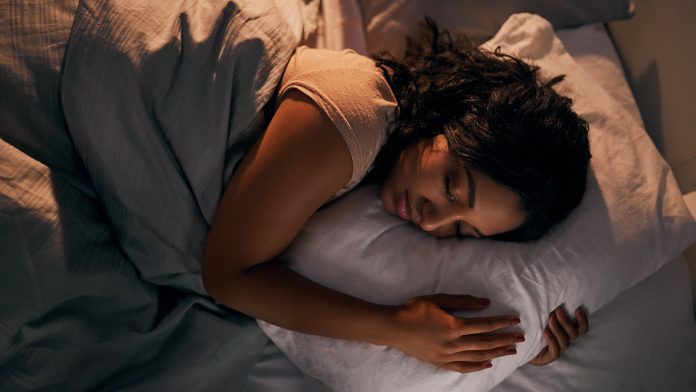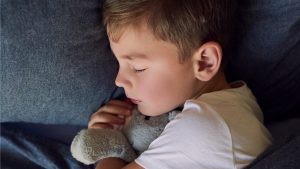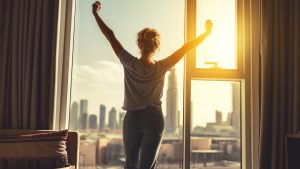
Health Europa speaks to Deputy CEO of The Sleep Charity, Lisa Artis, about the health impacts of sleep deprivation and why a holistic approach to our wellbeing is essential in supporting a good night’s sleep.
Considering there is a plethora of idioms associated with sleep – ‘burn the candle at both ends’, ‘out for the count’, ‘sleep like a baby’, to name but a few – it is interesting how few of us are aware, or indeed give ample attention to the ways in which sleep can impact our overall health, and vice versa. While as babies, we regularly slip seamlessly into a restorative doze without question, the busyness and anxieties of modern-day living can often mean our ability to sleep becomes more problematic. Indeed, according to The Sleep Charity, 40% of adults experience sleep issues with common causes including stress and worry around jobs, finances, and family. So influential is sleep that prolonged deprivation among the UK’s workforce is estimated to cost the nation’s economy £40.2 billion per year in productivity losses. Consistently sleeping poorly can impact both mental and physical wellbeing, affecting our memory, mood, and even increasing our risk of non-communicable diseases such as heart disease and diabetes.
Many of us do not consider the ramifications of prolonged sleep deprivation until it is having a dramatic impact of our daily lives. With this in mind, is there enough awareness around the importance of sleep? Health Europa posed the question to Lisa Artis, Deputy CEO of The Sleep Charity, an award-winning organisation dedicated to providing expert knowledge, training, and advice on sleep issues and supporting everyone in getting a good night’s rest. Here, we discuss the complexities around public health messages concerning sleep, the short and long-term effects of sleep deprivation and small changes people can make to safeguard their sleep and, in turn, their health.
What are some of the common reasons behind sleep deprivation for both adults and children and how has this been affected by the pandemic?
For adults who are struggling to sleep, the main reasons are generally stress, worry and anxiety. These factors are often related to work, finances, and family. Another factor usually contributing to sleep deprivation is sharing a bed. If a person’s partner snores or they are tossing and turning a lot during the night this can disturb sleep.
The pandemic obviously heightened levels of anxiety and stress for many people, and changes to usual routines seem to be a key driver affecting sleep. Prior to the pandemic, the vast majority of adults would leave the house for work, however COVID has merged the boundaries between the office and home, with many parents juggling home schooling and their own job at the same time. This has made it much harder for people to switch off at the end of the working day. Additionally, social isolation and not having the opportunity to exercise as and when desired also affected people’s sleep.
Children’s routines were also greatly affected by the pandemic; working parents may have allowed their child to sleep in later or go to bed later simply to allow them to catch up with a bit of work. We carried out a survey which indicated a huge increase in children’s use of technology during the pandemic, both as a result of having to study from home and as a way of staying occupied while parents work.

Up to 50% of children can experience sleep issues and that rises to around 80% if they have a diagnosis of special educational needs and disabilities (SEND). There are therefore a lot of sensory issues that come into force. Sleep deprivation can also occur due to issues around self-settling; children may need a parent to be in the bedroom with them, to soothe them and help them to settle before bedtime. Establishing the right bedroom environment for a child can be hugely important for sleep. We often try to make children’s bedrooms vibrant and playful, because we want them to love that space and often their toys will be kept there, however, it is important that bedrooms feel serene at bedtime with minimal noise and light interference. Equally, there is a huge percentage of children who sleep well and thus will not be as affected by these factors.
We can often overlook the importance of sleep for our overall health, do you think more could be done at a policy level to raise awareness about its impact?
There is still a lot of work to be done around education of sleep and the huge impact it does have on both physical and mental wellbeing. At the moment, we are only really scratching the surface of how it does affect our health and it is great to see organisations like Mental Health Foundation and Mind incorporating sleep into some of their key messages around mental health because the two are fairly closely linked. The problem with sleep from a policy perspective, and why I think there is not a great focus on sleep within the public health agenda, is because it is a really complex topic. Unlike diet where you can advise people to eat five portions of fruit and vegetables per day, or exercise for 150 minutes per week, we cannot simply recommend someone sleeps for eight hours a night, because they may actually function well on seven or need closer to nine. Furthermore, you may sleep for six and half hours but really want closer to eight, however, you might have young children who keep you awake, or work pressures, or you might just physically not be able to sleep any longer, but you really want to. Sleep is a complex process and there is no prescription around it.
The is a general consensus that seven to eight hours of sleep per night is the norm and there is a lot of research out there that says regularly sleeping for less than six hours per night has a huge impact on your risk of cardiovascular disease and obesity. One of the things The Sleep Charity is trying to do is to normalise sleep because experiencing a few bad night’s sleep is really normal. There are many things that can disrupt your sleep, such as a big presentation at work the next day or a doctor’s appointment. What we generally find is, once these events have taken place, people fall back into a normal sleeping pattern. At the same time, if you are noticing that your sleep is disturbed on a regular basis, you need to start looking at what has gone wrong or what has changed and what you can do to improve your sleep before it gets worse. The problem is, so many people ignore the impact of disturbed sleep because they think it will get better next week, then before they know it a few months have passed and by the time they maybe see a GP, it becomes really hard to unpick some of the bad habits, or some of the behaviours that have been placed around sleep.
What are some of the health impacts of short-term and long-term sleep deprivation?
In terms of short-term effects, you may notice difficulty concentrating, problem solving, and decision making as well as a change in your mood. These things are easily rectified if you start sleeping better again. Long-term sleep deprivation is linked to depression and anxiety, and from a physical health perspective, it is linked to heart disease, stroke, type-two diabetes, obesity, and even Alzheimer’s disease.
What are some of your recommendations for getting a good night’s sleep?
From an adult perspective, try not to overthink it. The more pressure you put on getting a good night’s sleep, the more you might worry when going to bed. Try to wind down in that hour before bed as opposed to trying to tick off multiple things on your to-do list. Consider what you are doing throughout the day that will help you get a good night’s sleep. So, as soon as you get up in the morning, you should be exposing yourself to natural daylight, it does not have to be a sunny day, but get the curtains open and let as much light into the bedroom as possible. If you have a dog or do the school run, walking in the morning is a really good way of resetting your body clock for the day. Think about what you are eating and drinking throughout the day, too. If you are sensitive to caffeine for instance, try switching to non-caffeinated drinks after midday. Equally, if caffeine does not seem to affect your sleep, do not feel you need to cut this out. People should not stop doing something if it is not impacting their sleep. With alcohol, it is fine to have a couple of glasses with your evening meal, however, if you are using it as a sleep aid, then you need to reassess what else you can do instead. Alcohol can make you feel relaxed and fall asleep quite quickly, but it can also fragment your sleep throughout the night so you never really fall into a deep sleep which is why you can feel quite groggy the next day.

Some people can exercise in the evening whereas for others it would be very difficult for them to wind down with the rush of adrenaline. In terms of your bedroom environment, try to keep it cool, around 16 to 18 °C is ideal. Also, try to create a space that is quiet and dark, darkness increases the production of the sleep hormone melatonin, which is what we need and why in winter we often feel sleepier. Look at what you are sleeping on, do you have a good mattress, supportive pillows and cosy bedding? Most adults can make time for a 30-minute wind-down routine. Do not feel that you have to have a warm bath and read a book if that is not enjoyable for you. Some people like crocheting or knitting, drawing, mindfulness, or meditation, do what you find enjoyable.
For parents with young children, it is really beneficial to establish a good bedtime routine. Ideally, dinner time should be followed by quiet play and hand-eye coordination activities like colouring, jigsaws or building blocks, then possibly a bath if your child finds that relaxing. Some children may find bath time exciting so consider having this earlier rather than just before they go to bed. Subsequent bedtime cues like putting on pyjamas, brushing teeth, going to the loo, listening to a story will help children to recognise that this is part of their wind-down routine. Additionally, try and give children a bit of time before bed, after dinner for instance, where they have the chance to talk about their day or ask any questions.
Sleep is the third pillar of health, along with diet and exercise, we should be putting the same emphasis on it and taking sleep seriously. Even those who are sleeping well should continue to safeguard sleep because it can be so easily broken. If you are a good sleeper, it does not hurt to check in, maybe twice a year, and consider if you are still sleeping well or if something has changed. Sleep is so fragile; it is important that we keep assessing it and looking after it.
Lisa Artis
Deputy CEO
The Sleep Charity
https://thesleepcharity.org.uk/
https://twitter.com/thesleepcharity
This article is from issue 20 of Health Europa Quarterly. Click here to get your free subscription today.







